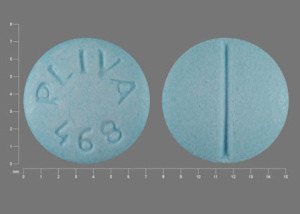Propranolol Interactions
There are 593 drugs known to interact with propranolol, along with 20 disease interactions, and 5 alcohol/food interactions. Of the total drug interactions, 47 are major, 496 are moderate, and 50 are minor.
- View all 593 medications that may interact with propranolol
- View propranolol alcohol/food interactions (5)
- View propranolol disease interactions (20)
Most frequently checked interactions
View interaction reports for propranolol and the medicines listed below.
- Abilify (aripiprazole)
- Adderall (amphetamine / dextroamphetamine)
- Adderall XR (amphetamine / dextroamphetamine)
- Ambien (zolpidem)
- Ativan (lorazepam)
- Benadryl (diphenhydramine)
- Cymbalta (duloxetine)
- Fish Oil (omega-3 polyunsaturated fatty acids)
- Flexeril (cyclobenzaprine)
- Flonase (fluticasone nasal)
- Klonopin (clonazepam)
- Lamictal (lamotrigine)
- Lexapro (escitalopram)
- Lyrica (pregabalin)
- Prozac (fluoxetine)
- Seroquel (quetiapine)
- Singulair (montelukast)
- Synthroid (levothyroxine)
- Topamax (topiramate)
- Tylenol (acetaminophen)
- Vitamin B12 (cyanocobalamin)
- Vitamin C (ascorbic acid)
- Vitamin D3 (cholecalciferol)
- Vyvanse (lisdexamfetamine)
- Wellbutrin (bupropion)
- Wellbutrin XL (bupropion)
- Xanax (alprazolam)
- Zofran (ondansetron)
- Zoloft (sertraline)
- Zyrtec (cetirizine)
Propranolol alcohol/food interactions
There are 5 alcohol/food interactions with propranolol.
Propranolol disease interactions
There are 20 disease interactions with propranolol which include:
- bradyarrhythmia/AV block
- cardiogenic shock/hypotension
- CHF
- diabetes
- hypersensitivity
- ischemic heart disease
- PVD
- asthma/COPD
- liver disease
- cerebrovascular insufficiency
- glaucoma
- hyperlipidemia
- hyperthyroidism
- hyperthyroidism PKs
- myasthenia gravis
- pheochromocytoma
- psoriasis
- tachycardia
- Prinzmetal's variant angina
- renal impairment
More about propranolol
- propranolol consumer information
- Compare alternatives
- Pricing & coupons
- Reviews (1,389)
- Drug images
- Side effects
- Dosage information
- Patient tips
- During pregnancy
- Support group
- Drug class: group II antiarrhythmics
- Breastfeeding
- En español
Related treatment guides
Drug Interaction Classification
| Highly clinically significant. Avoid combinations; the risk of the interaction outweighs the benefit. | |
| Moderately clinically significant. Usually avoid combinations; use it only under special circumstances. | |
| Minimally clinically significant. Minimize risk; assess risk and consider an alternative drug, take steps to circumvent the interaction risk and/or institute a monitoring plan. | |
| No interaction information available. |
See also:
Further information
Always consult your healthcare provider to ensure the information displayed on this page applies to your personal circumstances.


